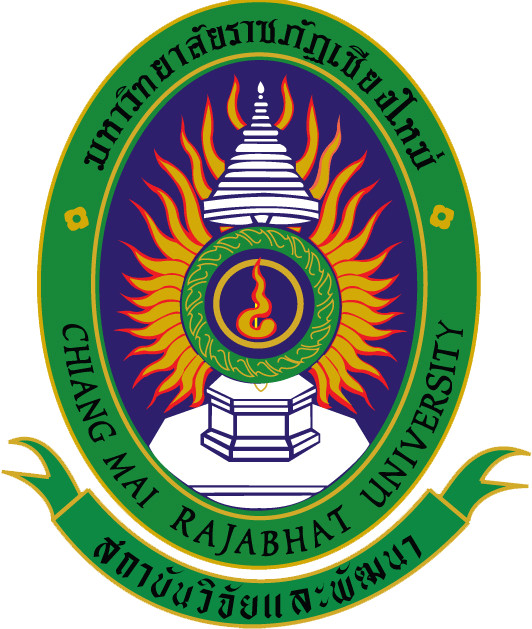
ระบบสารสนเทศงานวิจัย สถาบันวิจัยและพัฒนา มหาวิทยาลัยราชภัฏเชียงใหม่
Research Information System(RIS)
วิธีสอนภาษาอังกฤษแบบเน้นการปฏิบัติงาน เพื่อพัฒนาทักษะภาษาแบบบูรณาการสำหรับนักเรียนระดับประถมศึกษาปีที่ 3 ในชุมชนชนบท
อาจารย์นงนุช จันทราภัย
คณะมนุษยศาสตร์และสังคมศาสตร์
คำสำคัญ :
เลขทะเบียน :
598-58-HUSO-NCPO
บทคัดย่อ
การวิจัยประยุกต์ เรื่อง “วิธีสอนภาษาอังกฤษแบบเน้นการปฏิบัติงาน เพื่อพัฒนาทักษะภาษาแบบบูรณาการสำหรับนักเรียนระดับประถมศึกษาปีที่ 3ในชุมชนชนบท” มีวัตถุประสงค์เพื่อ 1) พัฒนาทักษะภาษาแบบบูรณาการของนักเรียนที่ได้รับการจัดการเรียนรู้แบบเน้นการปฏิบัติงานที่ผนวกการเรียนรู้แบบร่วมมือกันเรียน การเรียนรู้แบบร่วมกันเรียน และการเรียนรู้แบบเสริมต่อความสามารถในการเรียนรู้ 2) ศึกษาความสามารถด้านภาษาอังกฤษของนักเรียนที่ได้รับการจัดการเรียนรู้แบบเน้นการปฏิบัติงานที่ผนวกการเรียนรู้แบบร่วมมือกันเรียน การเรียนรู้แบบร่วมกันเรียน และการเรียนรู้แบบเสริมต่อความสามารถในการเรียนรู้ 3) ศึกษาความพึงพอใจของนักเรียนที่ได้รับการจัดการเรียนรู้แบบเน้นการปฏิบัติงานที่ผนวกการเรียนรู้แบบร่วมมือกันเรียน การเรียนรู้แบบร่วมกันเรียน และการเรียนรู้แบบเสริมต่อความสามารถในการเรียนรู้ 4) ศึกษาความพึงพอใจของครูผู้เข้าร่วมวิจัยโดยการศึกษาสังเกต กลุ่มตัวอย่างกลุ่มหลักของการวิจัย คือ นักเรียนระดับประถมศึกษาปีที่3 จากโรงเรียนในชุมชนชนบทจังหวัดเชียงใหม่ จำนวน 1 ห้องเรียน รวมจำนวนนักเรียน 35 คน ได้มาโดยวิธีสุ่มตัวอย่างอย่างง่าย กับกลุ่มตัวอย่างกลุ่มรอง คือ ครูที่สอนระดับประถมศึกษา ในชุมชนชนบทจังหวัดเชียงใหม่ จำนวน 2 คนได้มาด้วยการเลือกโดยวิธีเลือกแบบเจาะจง เครื่องมือที่ใช้ในการวิจัยประกอบด้วย แผนการเรียนแสดงเนื้อหาภาษาอังกฤษ แผนการจัดการเรียนรู้แบบเน้นการปฏิบัติงาน ใบงาน แบบทดสอบความสามารถด้านภาษาอังกฤษสำหรับก่อนและหลังการทดลอง แบบบันทึกกิจกรรมการเรียน แบบบันทึกความถี่ทักษะทางภาษา ชุดคำถามต้นแบบสำหรับการสัมภาษณ์นักเรียน ชุดคำถามต้นแบบสำหรับสัมภาษณ์ครูและผู้วิจัย ในการวิเคราะห์ข้อมูล ทำการวิเคราะห์การพัฒนาทักษะภาษา โดยอาศัยเกณฑ์การจำแนกกลุ่มข้อมูลเป็นกลุ่มมีพัฒนาการทักษะภาษาแบบบูรณาการ กับกลุ่มไม่มีพัฒนาการทักษะภาษาแบบบูรณาการ ด้านความพึงพอใจทำการวิเคราะห์โดยอาศัยเกณฑ์จำแนกกลุ่มข้อมูลเป็นกลุ่มพึงพอใจกับกลุ่มไม่มีความพึงพอใจ ส่วนข้อมูลความสามารถด้านภาษาอังกฤษ ทำการวิเคราะห์โดยใช้โปรแกรมประมวลผลสำเร็จรูป paired spss for window โดยใช้สถิติ t-test แบบ sample เพื่อเปรียบเทียบค่าเฉลี่ย สถิติร้อยละ และส่วนเบี่ยงเบนมาตรฐาน ผลการวิจัยพบว่า การจัดการเรียนการสอนด้วยวิธีการเรียนรู้แบบเน้นการปฏิบัติงานที่ผนวกการเรียนรู้แบบร่วมมือกันเรียน การเรียนรู้แบบร่วมกันเรียน และการเรียนรู้แบบเสริมต่อความสามารถในการเรียนรู้ แสดงผลการพัฒนาทักษะภาษาแบบบูรณาการของนักเรียนที่เข้าร่วมการทดลอง ผลการทดสอบความรู้ด้านภาษาอังกฤษหลังพบว่า นักเรียนสอบได้คะแนนภาษาอังกฤษสูงขึ้นภายหลังจากการเข้าร่วมการจัดการเรียนรู้ด้วยวิธีดังกล่าว ด้านความพึงพอใจพบว่า นักเรียนมีความพึงพอใจและเป็นสุขที่ได้เรียนรู้วิธีเรียนที่สามารถพัฒนาตนเองได้ และช่วยเหลือผู้อื่นได้ ครูผู้ร่วมการวิจัยมีความพึงพอใจต่อการจัดการเรียนรู้ดังกล่าวจากการถามพบว่า นักเรียนที่เป็นเด็กพิเศษสามารถพัฒนาทักษะภาษาอังกฤษได้ในระดับหนึ่ง
Abstract
The Research titled “The Task-Based English Learning and Teaching Method to Develop Language Skills for Primary Class Students of Level 3in Local Community” aimed to 1) develop the English language skills of primary class students of level 3 in local community through the task-based approach that is engaged with theoretical concepts of cooperative learning, collaborative learning and Scaffolding learning ; 2) study the ability in English of the students before and after learning English through the task-based approach that is engaged with theoretical concepts of cooperative learning, collaborative learning and scaffolding learning ; 3) study satisfaction of the primary class students of level 3 in local community on a task-based approach that is engaged with theoretical concepts of cooperative learning, collaborative learning and scaffolding Learning for their English lessons; and 4) study satisfaction of the primary class teachers in local community on the task-based approach that is engaged with theoretical concepts of cooperative learning, collaborative learning and scaffolding learning. The samples comprised primary and secondary groups. The primary group was made up of 35 students. And, the secondary group consisted of 2 primary class teachers who observed and assisted to run the research. One teaches English, the other teaches Thai. Research instruments were of 1) a learning-teaching plan 2) a task-based learning plan 3) a text book and an exercise book 4) 30 task sheets 5) a set of learning diaries 6) a set of language skills checked list 7)a set of interviewed guidelines for the primary-grouped samplers 8) a set of interviewed guidelines for the secondary-grouped samplers, an English language pre-test and an English language post-test 9) the research sets of criteria. Analysis involved 2 modes of processing – the research sets of criteria and the paired spss for window statistic program 1. Research sets of criteria processing were used with the following: 1) The language skill data which were categorized by the criterion of being used in integration and not being used in integration 2) The completion of task sheets which was categorized into completed and uncompleted groups 3) The numbers of task -sheets submitted were put into two groups. One was more than 14 sheets and the other was lesser than 15 sheets, the first was counted as satisfaction and the other was unsatisfaction 4) The interviewed data were categorized by criterion of satisfaction and unsatisfaction 2. The paired spss for window statistic program was used to process the data derived from the English language pre-test and the post-test The results of the first-three categories of data were cross-checked by comparing with evidences of class room activities. Likewise, all were put together for reanalysis in order to achieve the most reliable out-comes. The findings are of the following : 1) the task-based approach that is engaged with theoretical concepts of cooperative learning, collaborative learning and scaffolding learning facilitated the primary class students of level 3 in local community to develop their language skills in integration ; 2) the primary students of this research were satisfied with the English task-based learning that is engaged with cooperative learning, collaborative learning and scaffolding learning; 3) the results of the English post-test were higher than the results of the pre-test, this marked the emphasis of the finding no 1. and the finding no 2. ,and 4) the teachers who observed and assisted to run the research were contented with this method of learning, they are interested to construct this innovative task-based approach for primary class students of level 1-2 for their English learning, and 1-2-3 for their Thai learning and other subject learning.
ไฟล์งานวิจัย
อยู่ในระหว่างการปรับปรุงเนื้อหา